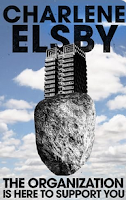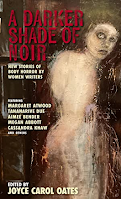The past couple of weeks were great for reading, so I already have some new short reviews, enjoy!
The Unworthy by Agustina Bazterrica
It is not necessarily a bad omen when a reader can't get into a book
from the get go. Take me for instance, trying to
start reading Agustina Bazterrica's latest novella, The Unworthy for the fifth time, having given up each attempt because I couldn't get the hang of the universe it is set in.
You
see we're in an undetermined future after a certain cataclysm related
to climate damage, bringing about post-apocalyptic life conditions with
no infrastructure, no production means, arid landscapes, and drowned
cities – hence civilization has collapsed. We're focusing in on an
unnamed main character living in a sort of monastery, the House of the
Sacred Sisterhood, of which she is an "unworthy", a lower cast member.
That's where the trouble started for me, the hierarchy and structure of
this religious institution is kind of... complex?
In this house
which supposedly provides shelter from the evils outside, there are
different ranks and each rank is connected to a certain punishment, a
torture treatment; cutting out of the tongue, sewing the eyes shut, you
name it... Life revolves around satisfying the sadistic Superior Sister
Enlightened and the mysterious one single male figure who claims to be
the mouthpiece of a new god. Totally logical and natural things
happening in a life after the end of the world, right?
The thing
is, once passed beyond the introduction into this somber world and its
depraved and cruel inhabitants, you find a story and a main character
who is slowly, but intensely likable. With the arriving of a stranger
into the convent, her whole persona crumbles and in rotating passages
we start getting invested in finding out what happened to her in the past and how all of this will end.
As is her style, Bazterrica tackles deep
questions in her latest book too; what it means to be human,
environmental issues, patriarchy, and religion... But she also shows the
way to hope, if you can get passed the initial slow burn. Keep in mind
that there are ugly, brutal scenes in here, which are used to lead to an
equally emotional ending (As an aside: anyone remember how Tender is the Flesh ended? Well, even if The Unworthy's
end doesn't hold up with that, it still bears the same punch-in-the-gut
quality). The violence is plentiful, but not gratuitous, and definitely
worth reading.
PS. - I've read this gorgeous hardcover edition and it has pictures of cockroaches inside, they're beautiful!
The Organization is Here to Support You by Charlene Elsby
Very rarely does a book appear from nowhere that is tagged as existential bureaucratic horror satire, and then goes on to describe basically your everyday office reality. It's official then, my life is a horror story, and thank you Charlene Elsby for reminding me.
This eye opening novella revolves around Clarissa Knowles, an employee of the "organization" and her everyday life in a live-and-work-facility. Slowly weird occurrences start creeping into her very regulated life; she receives a suggestive mail from one of her business contacts, she is dragged into the weird and unfair competition for a higher paid role in which she has no interest, reprimanding office talks...
The Organization is Here to Support You is an amusing, quite captivating little story with an ending you will never ever see coming. You just have to love everything Elsby writes.
A Darker Shade of Noir: New Stories of Body Horror from Women Writers, ed. by Joyce Carol Oates
I
was thrilled to see a Joyce Carol Oates-edited anthology about body
horror written by women authors! Especially after that weird and
ridiculous incidence last year in which she was called “not hot enough”
to be able to understand or write about Marilyn Monroe and the way she
has been sexualized, and this seemed like an adequate clapback to me,
given that, in the words of Nat Cassidy, women (ALL of them) never get to forget they have a body.
The
anthology starts very very strong, but unfortunately fails to keep up
that initial oomph, partly because it distances itself from its ambition
of representing body horror, the concept of the anthology gradually
falling apart and dissolving into more contemporary writings of anything
involving a woman and a bodily change in the widest sense. An example
would be Margaret Atwood's featured story “Metempsychosis, or the Journey of the Soul”,
which explores alienation and estrangement through a snail's soul that
possesses a young woman's body, and which lacks an unsettling or
transgressive tone that characterizes horror. Granted, not every horror
work needs to be written in that tone, but then at least the subject
matter on itself should be horrifying to compensate. This here is weird
fiction at best. Surely I don't mean to gatekeep horror, it has a wide
definition and don't get me wrong - this story and others are excellent
stories, as expected from giant names that contributed. But when you put
“body horror” in the title though, you put a certain expectation in
your readers, and if you fail to deliver that, well...
My highlights were: Aimee Benders' “Frank Jones” revolving around a woman who builds a puppet out of her skin tags and how that affects the relationship to her work mates; “Dancing"
by Tananarive Due, amazing and on the spot short story that does
everything right – when a woman can't stop dancing after the death of
her aunt, she needs to get to the heart-shattering root of what's
happening; and finally “Concealed” by Lisa Tuttle, an acutely
current piece of writing that pokes the wound of what has been going on
concerning women's bodily autonomy, and how it affects all of us.
Although
not all the stories appealed to me, I want to emphasize that it is a
very worthwhile anthology - just look past the marketing category and
concentrate on the content, and you will surely find something for your
taste.
Handling the Undead by John Ajvide Lindqvist
The book was published in 2005, so since then alternative treatments and interpretations of the Zombie genre have become common practice, this must have been one of the pioneers in that sense.
In accordance with this rather realistic approach to the Zombie genre, Ajvide Lindqvist explores societal, legal, and political changes in the aftermath of such an occurrence. As an added quirk, their awakening gives way to a sort of telepathic awakening too, with “normal” humans starting to be able to read the thoughts of their loved ones, giving this experience a sort of mirror quality.
I first saw Thea Hvistendahl's movie of the same title which is based on this book, and it was a very touching experience, although I know people who said it was too slow paced/boring for them. In the film, the emotional aspect is even more highlighted as I think visual input can sometimes have even more emotional weight. Watching a grandfather cleaning up the earth and dirt on the little bruised body of his once dead grandson, or an elderly lady feeding the love of her life little morsels of bread with honey, I admit I silently cried in the theater.
The book didn't move me to the same degree, although I think it is a great piece of speculative fiction with an underlying horror I really enjoyed reading.
Dengue Boy by Michel Nieva
The fact that a big mutant mosquito boy goes to school, is sent to summer camp, and of course gets bullied as every normal child does (he may be bullied a little more than the average kid, but you get the gist) is possible against the backdrop of a universe in which winter and cold weather have vanished, the ice caps melted, climate has gone awry and accordingly new diseases and viruses have appeared. Not everything is radically different, though; the gap between rich and poor is alive and kicking, and racial hate is living on, not the least in the form of a brutal video game set in the historical 19th century.The future world Nieva builds here is utterly bleak, violent, absurd, in-your-face and funny. After realizing that he shares more attributes with the hated insect, Dengue Boy/or Girl (who can switch sexes) decides to go after his disgusting school bullies, and maybe find out who his father is. And life goes on... Up until that wild end. And wild is an accurate word to describe this novel, as I recognize some traditions, but also lots of stuff new to me. Gaucho punk... Wild.
Struggling actress Jess finds a little boy who is hiding in the bushes outside her apartment, and also encountering his father, who is a werewolf, the two of them flee and run for their lives. That's not all though, the boy can turn his imagination into reality and as awesome as that may sound, like animating little puppets at the department store to play with, there's also horrible monsters and fears and anxiety in a child's head you don't want to have in real life. Where will that lead?
I’m a little cautious with books who bear the optimistic message “you can do anything you want if you just believe”, maybe because too many times I did and it didn’t only not happen for me, it also put a lot of guilt and feeling ashamed for maybe not believing hard enough or having failed somehow. It is very fertile ground for disappointment. So, there’s that. Another reason this didn't work for me is that the main theme of imagination coming to life, animation of fears and fearful creatures is something I just recently read from the pen of Chuck Tingle in Bury Your Gays, and although it’s probably nobody’s fault, I don’t like to read newly published books dealing with the same thing in such close succession, it’s not the author’s fault.
I appreciated the author’s afterword, he always has some personal anecdote to go with his books and I enjoy those and appreciate him opening up so intimately to his readers.






Comments
Post a Comment